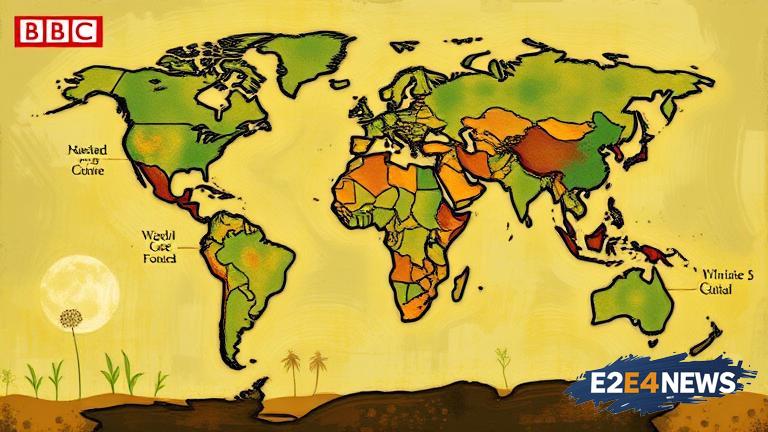The world is facing an unprecedented threat to global food systems due to climate change. Rising temperatures, changing precipitation patterns, and increased frequency of extreme weather events are impacting food production, processing, and distribution. This has significant implications for food security, particularly for vulnerable communities. Climate change is altering the suitability of land for farming, leading to crop failures, and reduced yields. Additionally, warmer temperatures are changing the distribution and prevalence of pests and diseases, further threatening food crops. The consequences of climate change on food systems are far-reaching, with potential impacts on human health, economic stability, and social cohesion. The effects of climate change on food systems are being felt globally, from droughts in Africa to floods in Asia. In some regions, climate change is altering the growing seasons, making it challenging for farmers to plan and prepare for the upcoming season. Furthermore, climate change is also affecting the nutritional quality of food, with some crops experiencing reduced nutrient content due to increased temperatures and CO2 levels. The economic impacts of climate change on food systems are significant, with estimated losses in the billions of dollars. Climate change is also affecting the livelihoods of farmers, fishers, and other food producers, who are struggling to adapt to the changing conditions. To address the impacts of climate change on food systems, governments, international organizations, and civil society are working together to develop and implement climate-resilient agricultural practices. This includes the use of climate-tolerant crop and animal varieties, as well as the implementation of conservation agriculture and agroforestry practices. Moreover, there is a growing recognition of the need to support small-scale farmers, particularly women, who are critical to food security in many developing countries. The international community is also working to reduce greenhouse gas emissions and mitigate the effects of climate change on food systems. In conclusion, the impacts of climate change on global food systems are significant and far-reaching, requiring urgent attention and action from governments, international organizations, and civil society. The need to address climate change and ensure food security is critical, particularly for vulnerable communities who are most affected by these changes. By working together, we can develop and implement effective solutions to address the impacts of climate change on food systems and ensure a food-secure future for all.
